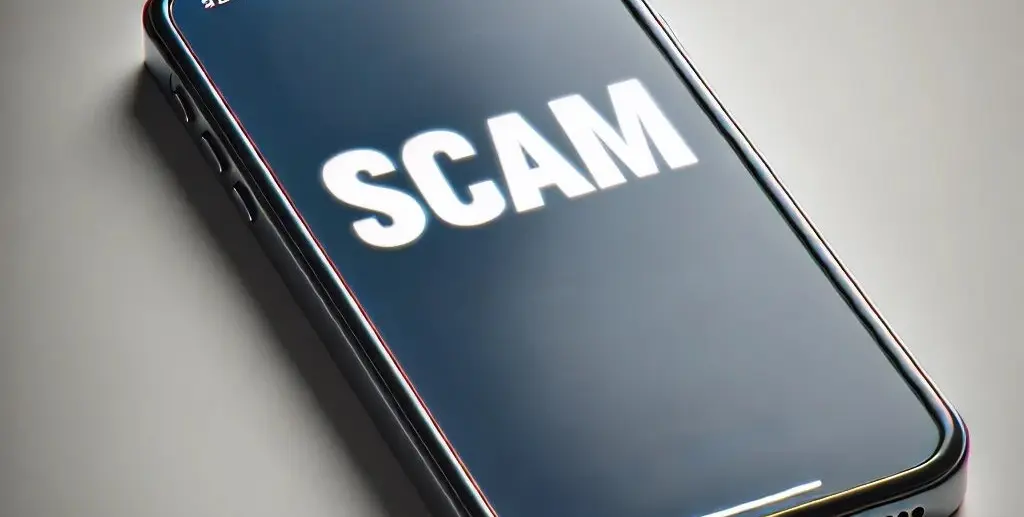
Beware of Delivery Scams: How Fraudsters Impersonate Couriers and the Post Office
We’ve all been there, right? Waiting for a package, refreshing the tracking page, listening for the doorbell. Then, ping! A text pops up. It’s about your delivery. Finally! Or is it? What if that message is actually a scam? Right now, across the UK, scammers are playing this game—and they’re good at it. They use the names of trusted couriers, even Royal Mail. And what do they want? Your data, your trust, your money. Let's look at how they do it and how you can stay safe.
The Tricks of Delivery Scammers
Imagine this: you get a message that looks totally real. It’s well done. It says there’s a problem—maybe a small missed payment, maybe they couldn't find your address, or maybe there's a tiny fee to pay to get your parcel. And there’s a link. Just one click. Those links? They lead to fake websites that look exactly like the real ones. Royal Mail, DPD, Amazon—everything looks right. The logo, the colours, and even the words.
It’s not always a badly written message. You might get, “Your parcel has been held due to an outstanding payment of £1.99. Click here to resolve.” Just one click, a small fee. Sounds simple, right? But that click opens the door. That tiny fee? It’s just the start. Now, you're giving away your card details, maybe even your bank login information. Suddenly, the scammers have everything they need.
Why Do People Fall for These Scams?
It’s not about being smart or not. These scammers are clever—and they know how we all work. Think about it. Everyone’s shopping online now. Deliveries are constant. If you’re like most people, you’ve always got a few parcels on the way. Scammers know this. They also know that when you’re busy, you might not stop to check every message closely. You see the courier’s name, a familiar logo, and an urgent message, and you act without thinking.
The messages come from numbers that look legit, too. Timing is everything. If you’re expecting a parcel, why wouldn’t you trust a delivery notification? They know you’re distracted—maybe juggling work, kids, or just having a busy day. When they catch you at that moment, it’s game over.
Real-Life Example: The Fake Royal Mail Payment Link
Here’s an example: an SMS says it’s from Royal Mail. It tells you they tried to deliver a package, but no one was home. To reschedule or pay for redelivery, you need to click the link. You click, and the website looks perfect—official colours, fonts, logos. It asks for your details: name, address, and even your card info for a “small redelivery fee.” It all seems normal. And that’s why it works.
In other versions, they ask for something tiny—maybe £1.99, just enough to not make you suspicious. It’s a small bait, but the hook is deep. Once they have your card details, they go for more. The small fee? It was just to trick you.
How to Protect Yourself from Delivery Scams
How do you avoid these scams? You need to be careful—and that’s okay. Here’s what you can do:
- Don’t Click Suspicious Links: If you get a text or email about a parcel needing payment or details, don’t click the link. Go to the courier’s official website or use their app.
- Verify Before Paying: A real courier won’t ask for extra payment after your parcel has shipped, especially not through a random link. If you’re unsure, call customer service.
- Spot the Red Flags: Look for signs like spelling mistakes or strange URLs with extra letters or dashes. If something feels wrong, it probably is.
- Install Security Software: A good antivirus can help keep you away from bad sites and flag risky links.
- Ask Yourself: Am I Really Expecting This?: Think for a moment. Are you actually waiting for a package from this company? If not, delete the message. Even if you are, it’s worth double-checking.
What to Do if You’re Targeted
Think you’re being targeted? Don’t panic, but act fast. Report the scam message by forwarding it to 7726 (the UK number for reporting spam texts). If you click a link and enter your details, call your bank immediately—they might be able to freeze your account or stop any unauthorized transactions.
Also, it should be reported to Action Fraud, the UK’s fraud and cybercrime reporting centre. The more they know, the better they can stop it from happening again.
Staying Ahead of the Scammers
These scams work because they rely on our trust and our busy lives. Scammers are opportunists—they take advantage of our schedules, our routines, our habits. But with some caution and a little scepticism, we can make it harder for them to succeed. Stay alert. Don’t rush. Double-check messages before clicking anything. And remember, a real courier will never pressure you to make a payment through an unexpected link. Pause. Think. Verify.
Getting a parcel should be exciting—whether it’s a new gadget, a book you’ve been waiting for, or even just some socks. Let’s not let scammers take that away. Stay smart. Stay safe. And tell others what to watch out for. The more we all know, the less power these scammers have to trick us. Together, we can make their job a lot harder.



